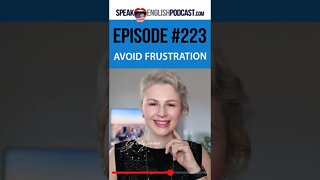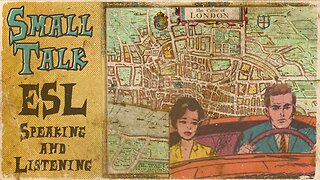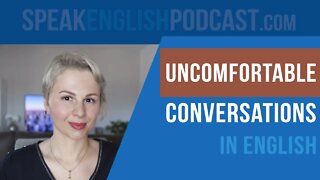How to Face Language Anxiety || Master Any Language With These Tips
Sabrina learned how to speak 6 languages fluently before turning 25! Here she shares her secrets to fluency and facing language anxiety on your language learning journey.
Does this sound familiar?
Learning a foreign language is often exciting. With each expertly executed email, understood dubbed episode of FRIENDS without subtitles or new emoji of encouragement from your language-learning app, you can find your confidence well and truly boosted.
Until…
You’re on holiday in France. You head into a cafe for a coffee and some breakfast. Thinking back to your French lessons, you compile the necessary words into a sentence in your mind and run it over a few times. The queue shrinks, and you find yourself facing the barista. Without warning, your heart begins to thump and your palms dampen. He looks at you expectantly, and you engage your suddenly weak vocal cords and open your dry mouth, only to hear someone that sounds just like you say;
‘Sorry, do you speak English? That croissant there, please…’
Foreign Language Anxiety is real
We all have days when normal, day-to-day tasks appeal slightly less than usual. And getting started utilizing a new skill inevitably comes with trepidation. But if you’re one of the people who finds that the thought of using the language you’re learning induces a debilitating fear, it sounds like you suffer from foreign language anxiety.
Also known as xenoglossophobia (try saying that without faltering), a spell of foreign language anxiety does what it says on the tin; gives you The Fear when trying to use the language you’re learning. It doesn’t discriminate, and can rear its ugly head when speaking, reading or writing in your non-native language.
Luckily for you, help is at hand! We have compiled a list of what we consider to be the best advice on how to tackle your anxiety and come out the other side speaking without so much as a bead of fearful sweat forming at your relaxed brow. But first, a little more about what foreign language anxiety actually is.
What causes foreign language anxiety?
Anxiety when using another language is something that has been examined by psychologists in order to better understand the causes, patterns and potential solutions. Horwitz and Young (1991) were the first to conceptualize foreign language anxiety as a ‘unique type of anxiety specific to language learning’. They came up with two ways to identify foreign language anxiety:
1 – transfer approach – this is where the anxiety caused by speaking another language is really a manifestation of other anxieties you might have.
2 – unique approach – when the anxiety experienced when dealing with another language doesn’t correlate with any other type of anxiety.
However, during their research they noted that anxiety around language learning must be specific to language learning. Gardner (1985) argued that not all types of anxiety would influence second or foreign language learning, but “a construct of anxiety which is not general but instead is specific to the language acquisition context is related to second language achievement”. Researchers began to agree that the anxiety induced by learning a foreign language was specific to the experience of learning another language and needed to be researched as such.
Horwitz et al identify language learning anxiety as “a distinct complex construct of self-perceptions, beliefs, feelings, and behaviours related to classroom language learning arising from the uniqueness of language learning process”. So whether or not you experience anxiety generally, the specific experience of learning a language can induce anxiety in part because ‘no other fields of study implicate self-concept and self-expression to the same degree as foreign language study.’
Psychologists have also noted the struggle between the self language learners wanted to communicate and the one they were able to. This is also deemed an anxiety inducing factor – the fear of coming across as boring or stupid can prevent people from feeling at ease using another language. No one wants to be the dullard at the party…
Following their research, Horwitz et al developed a system to diagnose Foreign Language Anxiety known as the FLCAS.
-
 0:52
0:52
nuancesempower
8 months agoUnlocking Confidence: Mastering Conversational Language to Manage Anxiety
1 -
 13:51
13:51
Speak English podcast with teacher Georgiana
1 year ago223 How to avoid frustration while learning English
29 -
 0:48
0:48
Speak English podcast with teacher Georgiana
1 year ago223 How to avoid frustration while learning English
42 -
 10:04
10:04
Improve English Vocabulary; Fluency and pronunciation
1 year agoESL: Improve listening and speaking skills with this exercise: Small talk dialogue 02 Shadow English
3 -
 12:01
12:01
Improve English Vocabulary; Fluency and pronunciation
1 year agoESL: Improve listening and speaking skills with this exercise: Small talk dialogue 04 Shadow English
4 -
 30:00
30:00
SuccessSubliminals
9 months ago $0.09 earned★LANGUAGE LEARNING★ Become Fluent In Any Language! - SUBLIMINAL Visualization (Powerful) 🎧
4841 -
 26:57
26:57
Improve English Vocabulary; Fluency and pronunciation
1 year agoESL: How to understand spoken English Improve your listening and speaking skills shadow English
7 -
 3:48
3:48
Kisinformation
7 months agoHow To Become FLUENT In Any Language | Tips & Tricks
10 -
 11:18
11:18
Live Stutter-Free
11 months agoStuttering Cure was never needed! First Joyful Stutter-Free Week of the Etalon Graduate
10 -
 12:52
12:52
Speak English podcast with teacher Georgiana
2 years ago#192 How to avoid uncomfortable conversations in English
55